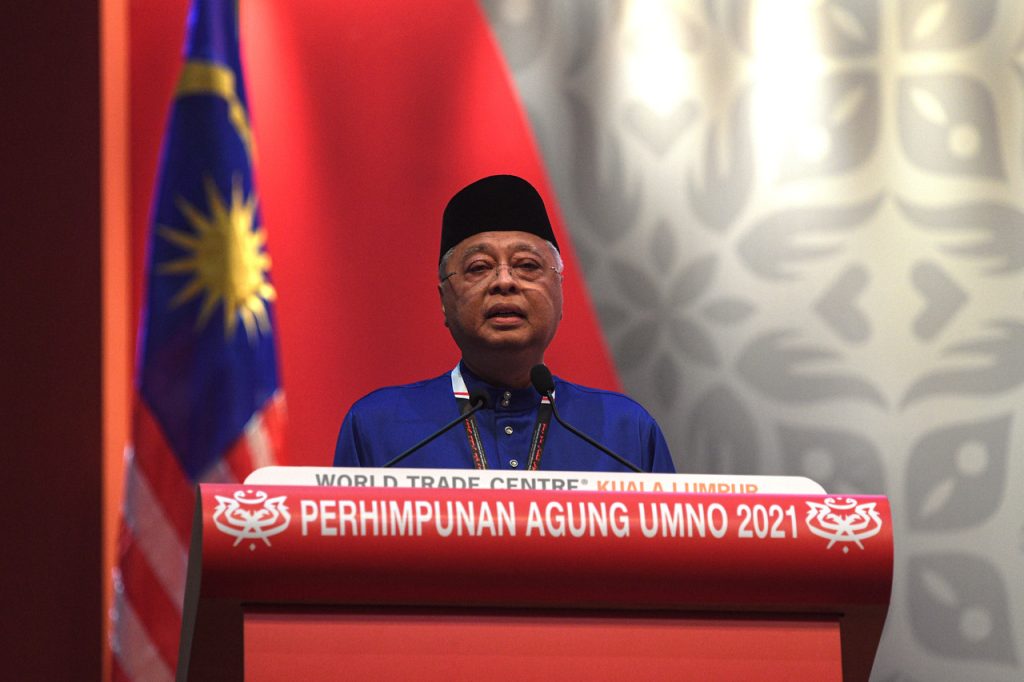PM Ismail: Malaysia To Implement RM1,500 Minimum Wage Starting 1 May
The new national minimum wage, however, comes with conditions and exceptions.
Malaysia will implement a new RM1,500 minimum wage starting 1 May, Prime Minister Datuk Seri Ismail Sabri Yaakob announced during his speech at the UMNO general assembly (AGM) last night, 19 March
Ismail, who is one of three vice-presidents of the Grand Old Party, told the UMNO AGM that after listening to the debates brought up by the delegates and the grievances of the people, he would like to take the opportunity to announce that the government has agreed to implement the new minimum wage.
He said that the move was needed as the B40 group was struggling with the rising cost of living.
"Therefore, I would like to announce in this sacred hall, the government has approved the implementation of a new minimum wage rate of RM1,500 per month from 1 May 2022 nationwide," Ismail added.
The Prime Minister, to applause from UMNO delegates, said in-depth studies were carried out regarding the impact of the new measure, especially on micro, small, and medium enterprises (MSMEs).
However, the new national minimum wage, which will go up RM300 from the current RM1,200, comes with conditions and exceptions
The new minimum wage will initially apply to big companies and government-linked companies.
The policy will also only be enforced on companies with five employees or more.
The Prime Minister said that small traders will also be exempted.
"If there's a restaurant, shop, or warong (stall) in the kampung that has workers, we understand it is not reasonable to force a minimum wage on them. So when 1 May comes, (the new rate) is for big companies, including government-linked companies and such," Ismail added.
Discussions will be held between Human Resources Minister Datuk Seri M Saravanan and Entrepreneur Development and Cooperatives Minister Tan Sri Noh Omar to allow micro-companies with few workers and low income to postpone its implementation since they may not have the financial ability to adopt the policy.
This comes after Saravanan told the Dewan Rakyat on Thursday, 17 March, that the RM1,500 minimum wage will be implemented in due time and the government was committed to enforcing it.
The Minister had also stated that the government will ensure that employers do not exploit the situation by reducing their manpower by laying off workers once the minimum wage comes into force.
Saravanan also said there may be certain sectors that will be exempted from implementing the minimum wage, adding that this exclusion may be for a period of about two years.
Additionally, the policy announcement comes at the disappointment of groups such as the Malaysian Employers Federation (MEF)
Back in February, MEF had told the government to scrap the policy, saying now was not the right time to increase the national minimum wage to RM1,500 and that such a move "will kill businesses".
According to MEF president Syed Hussain Syed Husman, the RM1,500 new minimum wage will result in higher unemployment and business debts, as companies will be unable to service their loans.
Syed had claimed that raising the minimum wage was not the solution for workers to earn higher wages, and that remuneration should be based on the performance of employees and profitability of employers.
The policy, Syed said, will benefit foreign workers more, as locals are already paid higher wages than RM1,500 and this will demotivate the employees whose current wages are well above the minimum wage.
Additionally, the outflow of money from the country will further increase, he said.
"It is estimated that foreign workers, on average, send back some additional RM4 billion each year for every RM100 increase in minimum wages. Thus, the increase of RM300/400 will cause an additional outflow of between RM12 billion to RM14 billion per year," he said, adding that at present, it is estimated that legal migrant workers are remitting about RM34 billion a year through official channels to the source countries.
